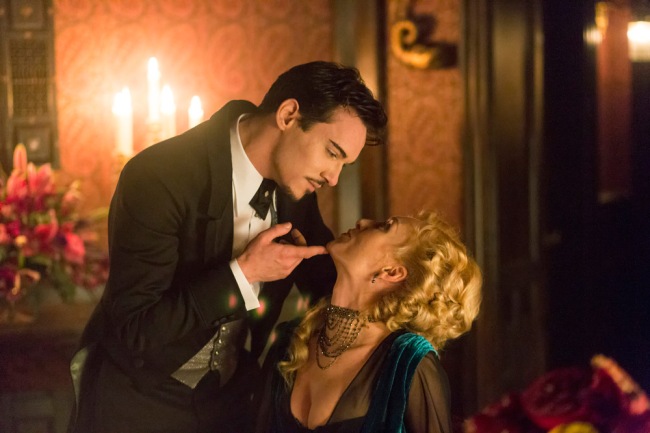We went to see Catching Fire today. I am a big fan of the Hunger Games novels. Big fan. I’ve read them multiple times, and each time I get to them again, I finish all three in 18 hours, tops, because they’re so damn compelling and readable. Every time. Every time I know what’s next, there are other layers, other thoughts, all the feelings. They are the heart-and-mind successor to Harry Potter, to all manner of great literature, but recently, at least, to Harry Potter, because they take hard times and difficult life and dark things and conflict and conflicting emotions to new levels.
I love the Hunger Games because they are always Katniss’ story. She is always the story. Even when her life is pulled this way and that, used by both sides, manipulated to the extreme, she is so consistent and strong a character that she’s never lost within the will of others. She survives a love triangle by being the best thing about it. She is the goal, the object, the fascination of the whole thing. She is a joy, a pain, a problem and an aspiration in turn, sometimes simultaneously.
I love the films because they understand Katniss’ story, but aren’t afraid to round it out. The perspective remains the same, but we get just a little more, just a touch more of President Snow, a little more of the districts, of the gamemaker, of things outside Katniss’ control and sight. Because we are lost when she is lost, and she finds the viewer, as well as the answer. Because she’s lucky…but not as lucky as she thinks. Because Katniss does the next thing, and survives the next obstacle, and barrels on through the most appalling situations…only because there is no other choice. She has something to live for, but even that is not always enough to convince her to stay alive. The fates conspire as much as everything conspires all around her.
The look of the films helps, undoubtedly. They capture the high technology and utter desolation of the outer districts perfectly. There are a few issues – mostly with the pace with which we’re forced to move through the story, an unfortunate constraint of legitimate cinematic timing, which, to be fair, I think is respectfully overcome in terms of the watching audience, and, still resonating, the fact that Katniss was racially miscast. I don’t know how much it’s my place to wonder about that, but, for all my utter and absolute adoration of the flawlessness that is Jennifer Lawrence’s Katniss (and Jennifer Lawrence as an actress, more on which shortly), I still feel there was an opportunity inexplicably lost. I don’t like to forget that that happened…still, this is not Lawrence’s fault, and oh my, does she embody the strength, weakness, emotion and self-centredness of Katniss in an absolutely defining way.
And she is a magnificent actress, unashamed of being funny, of crying, of epic bitchface (I hope it’ll be infinitely in place on ONTD posts everafter), of being wrinkled or out of breath, exhausted, puffy, blistered, bright, beautiful, over-dressed, under-dressed, anything. Lawrence has a belief and confidence in herself as Katniss that makes Catching Fire in particular an extremely easy film to watch, even whilst its content is tough and challenging, or edging on cheesy or typical, or confusing, or quiet…it is always easy to look at her face and feel completely within her character. You are as within Katniss’ mind as her dialogue in the books, if not more so, for she’s much less irritating when shown briefly kissing characters than when extensively thinking about it – not something I ever hold against her, for I too have been a teenage girl; still, brevity is the soul of romance sometimes, and particularly in blockbusters.
This isn’t to forget Lawrence’s surrounding cast, which always match her. The chilling head peacekeeper sent to District 12? Just the right amount of conviction, self-belief and understated horror to be so unnerving that you only want to look away, but never can. Haymitch, and his slightly reworked, damaged, weatherbeaten, circumspect mentorness. Effie Trinket, showing that anyone from the Capital might, if only shown the truth of things, come to understand, although they’d never be willing to relinquish their hair. Cinna – the ever-gorgeous Lenny Kravitz who will apparently never age – making the most beautiful stand against anything that I can imagine. Peeta – such an important part in Katniss’ story, yet, in this film, so welcomely underplayed. Yet, if you’ve read what’s to come, you know that this part is played with such professional, even coolness that every line could, could be duplicitous. Could be a reflection of anything. Could be whatever you believe that character to be being at any point.
The biggest strength of Catching Fire, for me, was that, for the first time – and, as I said, I’ve read the books a lot – I really believed in Peeta/Katniss. I’ve understood, perhaps, but never cared for their partnership, hoped for or otherwise. But I felt the film brought the necessity, the edge that I wanted that pairing to have. I also found myself leaving with an unexpected slice of Peeta/Finnick (manipulated, sure, but hey, I’m always willing to be manipulated in the cause of attractive pairings). “I wish I’ll love someone like that one day…” – film, you make it too easy.
And let’s talk about Finnick for a second. i’ve seen the actor in a good few interviews and whatnot. I didn’t quite get his casting. Couldn’t see it. But, didn’t mind all that much. I thought Finnick a most interesting character, and worthy of a lot better than he gets in his peak sequence in Mockingjay (indeed, my biggest fault with the whole novel trilogy is Finnick’s latter storyline in Mockingjay which I had to read about three times to fully understand), but he wasn’t of my heart like Katniss. I wasn’t moved by him as much as some readers were, and he didn’t capture my emotions like he might have. And yet, and yet. Within seconds of being introduced to film!Finnick, I had fluttering heart and twisting stomach. I was genuinely surprised by his physicality, his understanding of how to play surface charm, bright, bold character with edge and heart and potential and past all there in the fewest of lines. That he came over hugely attractive was obviously at the heart of it, but as I say, I’ve seen the actor around aplenty and felt not a thing. This was the character brought to perfect realisation, for me, and there was a lot riding on the shoulders of the Finnick-casting, so again, I say gold star.
There are odd parts of Catching Fire – it’s always difficult to do crazy monkeys without coming over all Return To Oz, say – but the actors hold it perfectly at every single moment. No-one ever lets up their game. When the writers explain things, it’s only so you can watch the film (how does the clock work, what’s the forcefield), never to let you into things you’re better unearthing in the text of the novel (how does the Capital work, what’s the point of the Games). The faith in the audience is absolute, and the willingness to take them on a real ride – tough, uncompromising portrayals and teasings-out of the real violence, the real horror of the system – is admirable. The sequence in which Cinna is beaten against Katniss’ capsule whilst she, helpless, is lost as she begins to ascend to her own greatest challenge…utterly breathtaking in its unpleasantry, in precisely the way that a 12A can be, should be, when it deals with the consequences like Catching Fire does.
This is why I loved the book. It’s the greatest sequel, in terms of consequences of the actions taken in the original, that I have ever read. It isn’t simply a continuation: it’s cause and effect. It’s z because y because x. It’s think before you speak. It’s mass media, state persecution, rebellion, control, defeat, hope, desperation and despair, brought together like very few novels can. It’s got points to make about almost anything and everything, and it’s got a lot of whatever you want it to be saying right in there.
Catching Fire lets you start any conversation you want to that will take you to almost any kind of issue. That’s no mean feat. It’s a door to bigger problems than cinema, It’s a way to start thinking about how revolutions begin, and what they do and don’t mean. It’s a way to analyse the hard things, to get into that state of mind that lets you see the worst (and, rarely, best) of humans, and how and why extreme situations bring these things to the fore. The film is the perfect version of everything in the book.
I am in awe, frankly, of how beautiful and strong a viewing experience it was. My brief logistical issues aside, it is a perfect realisation of the novel, which I found to be a pretty perfect novel. Given that I am not the greatest fan of the third book (despite my utter love of the conclusion of the series, which I think is completely, perfectly spot on…l just feel there are content and editing issues with the first two thirds of it), I await the remaining two films with intrigue, hoping that they can distil the essence of Mockingjay and make the best of the brilliance assembled for Catching Fire, and behind the scenes. These are momentous films, for some of the greatest storytelling of our time, and how fortunate we are that its protagonist is an utterly real young woman whose faults and excellences are treated with complete evenness throughout.

